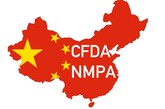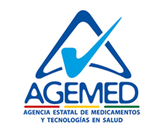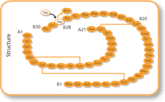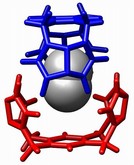Biosimilars/General
Potential biotech collaboration between India and Colombia
A letter of intent on cooperation in biotechnology has been signed between India and Colombia, which could include collaborations on vaccines, biosimilars, and medical devices.
China approving more copy biologicals since new guidelines introduced
China has approved many more copy biologicals in the last three years. A move which, according to Pharmaceutical Technology, is thought could be due to the introduction of new guidelines for the products.
New Zealand to expand access to rituximab, possibly adalimumab
New Zealand’s Pharmaceutical Management Agency, Pharmac, has announced a decision to expand access to rituximab and has launched a proposal to expand access to adalimumab.
Off-patent biologicals/Biomimics approved in Bolivia
In Bolivia, the regulatory body for the approval of biologicals is the State Agency for Medicines and Health Technologies AGEMED (Agencia Estatal de Medicamentos y Tecnologías en Salud).
Interactive map for interchangeable biosimilars
US-based healthcare services company Cardinal Health has launched an interactive map for interchangeable biosimilars as part of its information for biosimilars.
Biosimilars, innovation in the treatment of chronic disease
Biological therapies have meant a significant advance in the way of treating various chronic conditions such as cancer, rheumatoid arthritis, multiple sclerosis. However, they have brought with them high costs for health systems that have been channelled through supply programmes of this type of drugs, in the case of the Dominican Republic, through the High Cost Medicines Programme.
Biosimilars of insulin aspart
Last update: 27 August 2021
Insulin aspart is a type of manufactured insulin used to treat type 1 and type 2 diabetes. It has a more rapid onset and a shorter duration of activity than normal human insulins.
Biosimilars applications under review by EMA – July 2021
The European Medicines Agency (EMA) is the body responsible for approval of biosimilars within the European Union (EU). A legal framework for approving biosimilars was established in 2003. Approval of biosimilars is based on an abbreviated registration process, which allows biosimilars manufacturers to provide a reduced package of information compared to originator drugs, provided they can prove ‘similarity’ to the originator or reference drug.
Quebec announces biosimilar switching policy
Quebec, Canada has announced a biosimilar switching policy, which is expected to generate annual savings of CA$100 million at its conclusion in 2022.
Biosimilars as a sustainable alternative for complex diseases
The use of ‘similar biotherapeutic’ products and ‘biocomparable’ medicines, as biosimilar medicines are named in Colombia and Mexico, respectively, offer a sustainable alternative for health systems, leading to significant savings for payers and health institutions, as well as market opening. Biosimilars thus provide a fair competitive solution.













